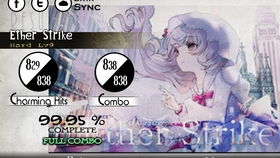Surah Ar-Rum Ayat 24: A Deep Dive into Its Significance and Interpretations
Surah Ar-Rum, the 30th chapter of the Quran, holds a special place in the hearts of Muslims around the world. Its 24th verse, in particular, has been the subject of much contemplation and interpretation. In this article, we delve into the various dimensions of this verse, exploring its historical context, linguistic nuances, and spiritual implications.
Historical Context

Surah Ar-Rum was revealed in Mecca, during the early days of Prophet Muhammad’s mission. The verse in question, Ar-Rum 24, comes in the midst of a discourse that addresses the polytheistic practices of the people of Makkah. It serves as a call to monotheism and emphasizes the unity of God.
Linguistic Nuances

Ar-Rum 24 reads: “Indeed, your Lord is Allah, who created the heavens and the earth in six days, and then established Himself on the Throne. He covers the night with the day, and covers the day with the night. He brings forth the living from the dead, and brings forth the dead from the living. And He provides for you from the heavens and the earth. So worship Allah, and do not ascribe any partners to Him.”
The verse is rich in linguistic nuances. The phrase “Indeed, your Lord is Allah” is a powerful assertion of monotheism. The mention of the creation of the heavens and the earth in six days reflects the Islamic belief in the creation story. The imagery of night and day covering each other symbolizes the cyclical nature of time and the continuous presence of God.
Spiritual Implications

Ar-Rum 24 has profound spiritual implications. It serves as a reminder of God’s omnipotence and His continuous care for His creation. The verse encourages Muslims to worship Allah alone and to recognize His presence in every aspect of life.
The mention of bringing forth the living from the dead and the dead from the living is a reference to the resurrection. It serves as a reminder of the afterlife and the ultimate judgment. The verse also highlights the interconnectedness of life and death, emphasizing the importance of living a life that is pleasing to God.
Interpretations and Commentaries
Over the centuries, scholars and religious leaders have offered various interpretations of Ar-Rum 24. One interpretation emphasizes the importance of gratitude. Muslims are reminded to be thankful to God for His blessings, both visible and invisible.
Another interpretation focuses on the concept of justice. The verse suggests that God is just and fair, and that He will reward or punish accordingly. This serves as a reminder to Muslims to lead a righteous life and to be just in their dealings with others.
Practical Applications
Ar-Rum 24 has practical applications in everyday life. It encourages Muslims to be mindful of God’s presence and to live a life that is in accordance with His teachings. This includes practicing gratitude, being just, and seeking knowledge.
Moreover, the verse serves as a reminder to Muslims to be patient and resilient in the face of adversity. The imagery of night and day covering each other symbolizes the ups and downs of life, and the importance of maintaining faith and hope during difficult times.
Conclusion
Surah Ar-Rum Ayat 24 is a verse that holds immense significance in the Islamic faith. Its historical context, linguistic nuances, and spiritual implications make it a subject of deep contemplation and interpretation. By understanding and applying the teachings of this verse, Muslims can lead a life that is in harmony with the will of God.






